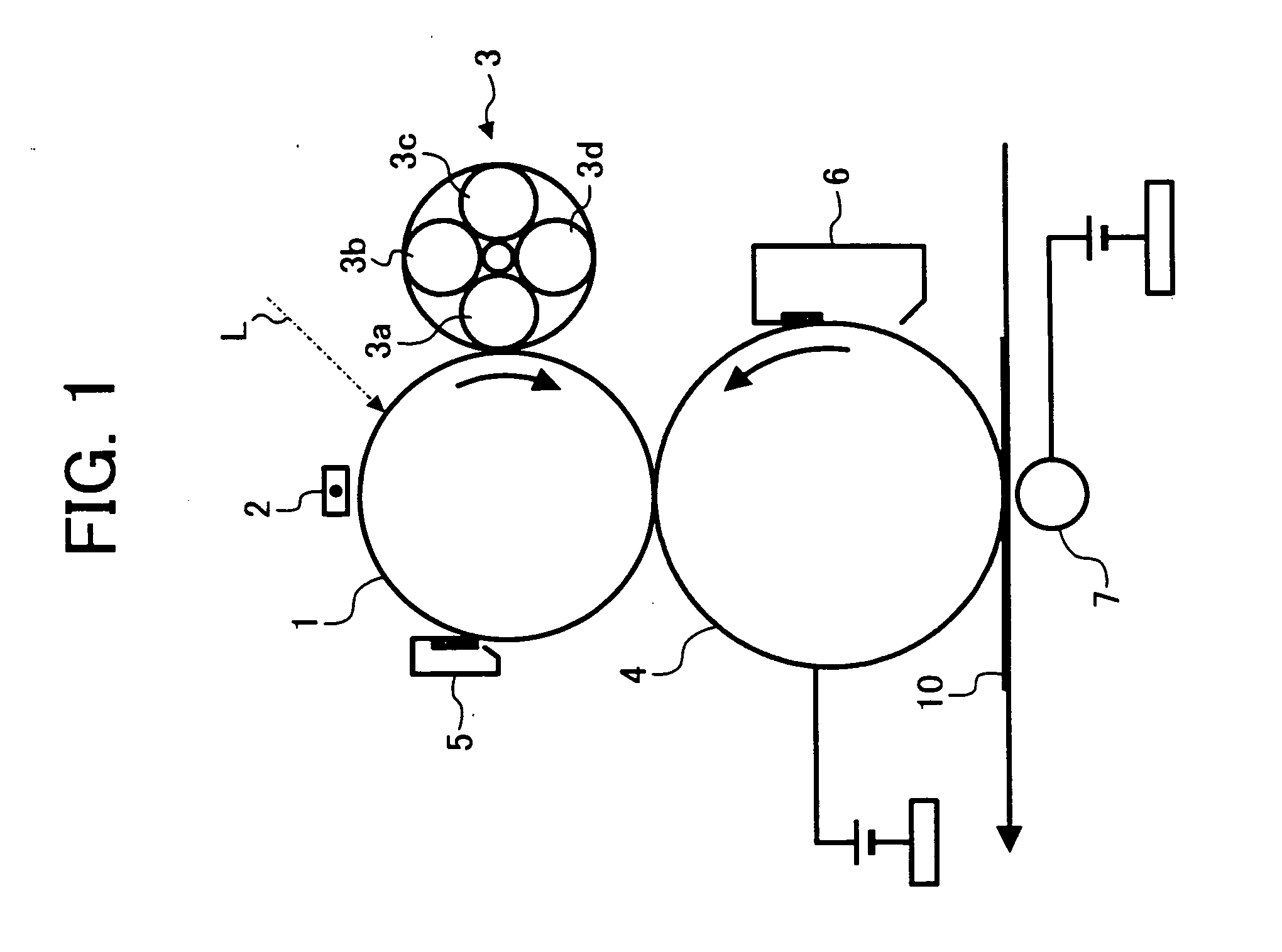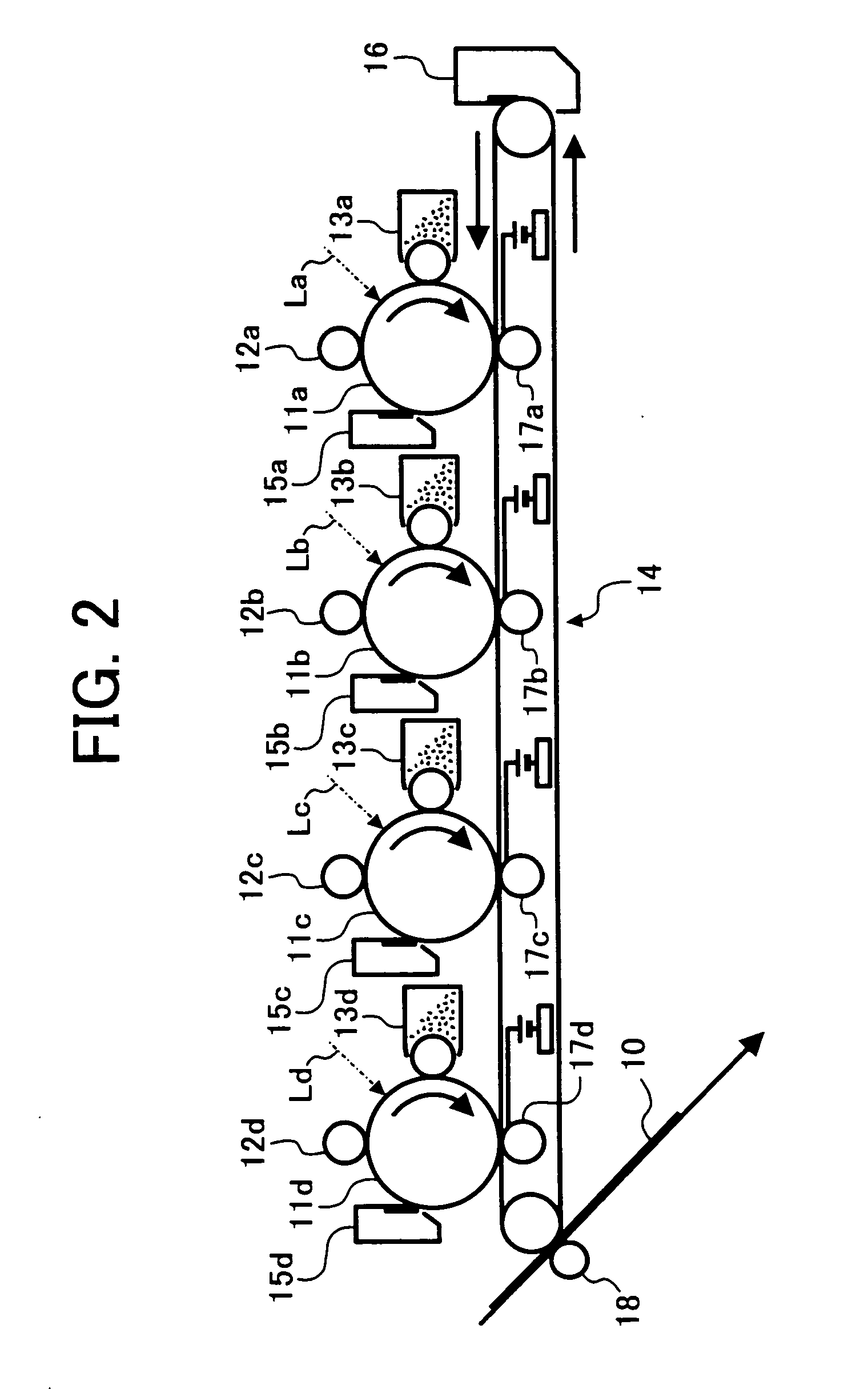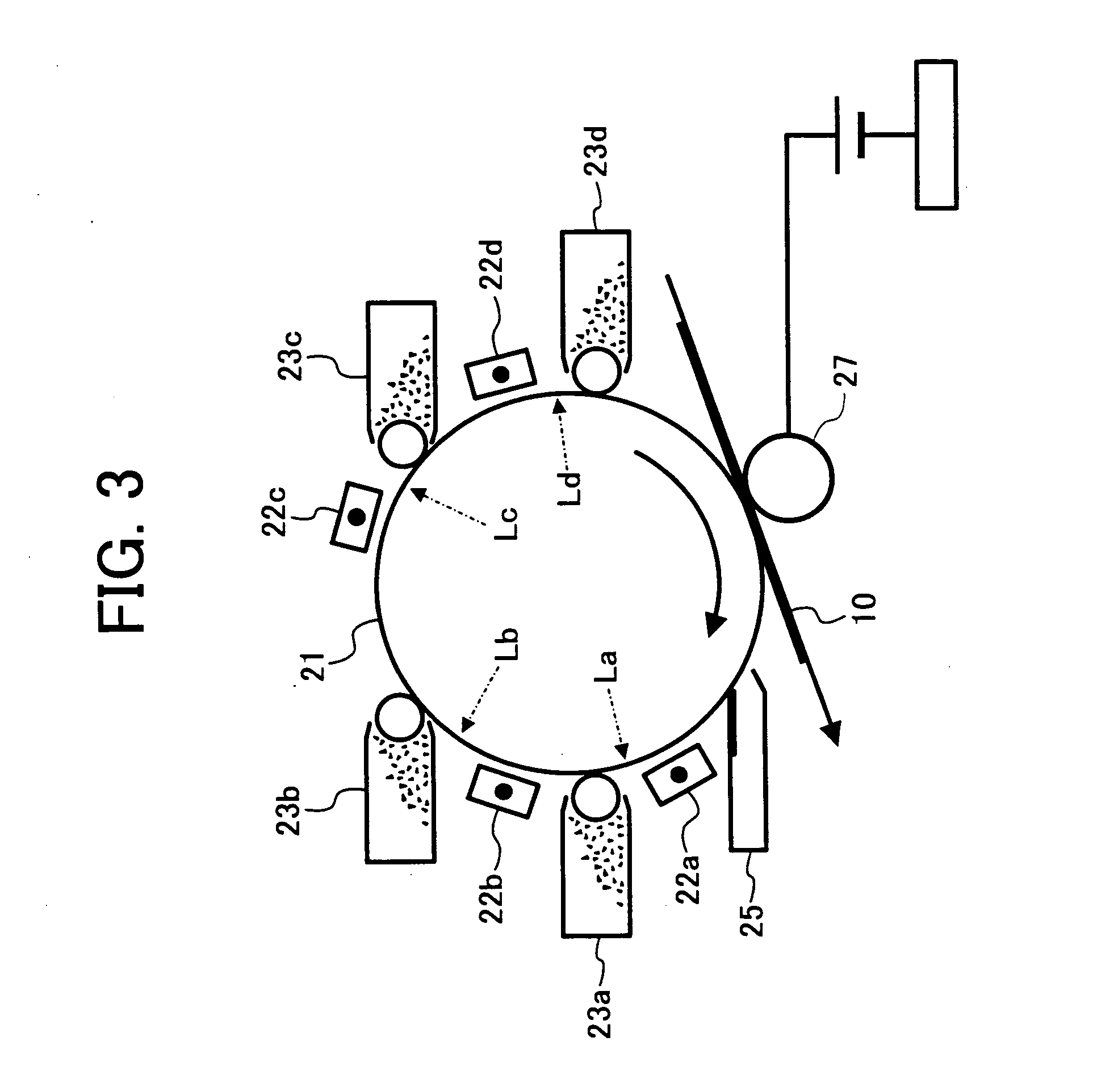Toner, method for preparing the toner, and image forming method and apparatus using the toner
a technology of toner and forming method, which is applied in the field of toner, method for preparing toner, and image forming method and apparatus using toner, which can solve the problems of deterioration of image quality, poor fluidity, and low packing ability, and achieve good charge property and fixing property, good charge property, and good high temperature preservability.
- Summary
- Abstract
- Description
- Claims
- Application Information
AI Technical Summary
Benefits of technology
Problems solved by technology
Method used
Image
Examples
example 1
At first, 200 parts of the ethyl acetate solution of the unmodified polyester resin prepared above, 5 parts of a carnauba wax, and 4 parts of a copper phthalocyanine pigment were fed into a ball mill pot including zirconia balls having a diameter of 5 mm to be subjected to ball milling for 24 hours. Thus, a toner constituent mixture liquid was prepared.
On the other hand, 60 parts of tricalcium phosphate and 3 parts of sodium dodecylbenzenesulfonate were dissolved and dispersed in 600 parts of deionized water contained in a beaker. The mixture was agitated by a TK HOMOMIXER from Tokushu Kika Kogyo Co., Ltd. while the rotor of TK HOMOMIXER was rotated at a revolution of 12,000 rpm and the temperature of the mixture was maintained at 20° C. Then the toner constituent mixture liquid prepared above was added thereto, and the mixture was agitated for 3 minutes to prepare an emulsion.
Then the emulsion was transferred to a flask equipped with a stirrer and a thermometer, followed by he...
example 2
At first, 200 parts of the ethyl acetate solution of the unmodified polyester resin prepared above, 5 parts of a carnauba wax, and 4 parts of a copper phthalocyanine pigment were fed into a ball mill pot including zirconia balls having a diameter of 5 mm to be subjected to ball milling for 24 hours. Then the polyester prepolymer prepared above was added thereto in such an amount that the solid of the prepolymer is 20 parts, and the mixture was agitated. Thus, a toner constituent mixture liquid was prepared.
On the other hand, 60 parts of tricalcium phosphate and 3 parts of sodium dodecylbenzenesulfonate were dissolved and dispersed in 600 parts of deionized water contained in a beaker. The mixture was agitated by a TK HOMOMIXER from Tokushu Kika Kogyo Co., Ltd. while the rotor of TK HOMOMIXER was rotated at a revolution of 12,000 rpm and the temperature of the mixture was maintained at 20° C. Then a mixture (i.e., an oil phase liquid) of the toner constituent mixture liquid prepar...
example 3
The procedure for preparation of the toner in Example 2 was repeated except that the stearyamine acetate was replaced with a fluorine-containing cationic surfactant F150 (from Dainippon Ink and Chemicals, Inc.). Thus, toner particles were prepared. It was confirmed from observation of the toner particles with a scanning electron microscope that the particulate resin (1) having a particle diameter of 105 nm is uniformly adhered to the surface of the toner constituent particles.
PUM
| Property | Measurement | Unit |
|---|---|---|
| glass transition temperature | aaaaa | aaaaa |
| polarity | aaaaa | aaaaa |
| polar | aaaaa | aaaaa |
Abstract
Description
Claims
Application Information
 Login to View More
Login to View More - R&D
- Intellectual Property
- Life Sciences
- Materials
- Tech Scout
- Unparalleled Data Quality
- Higher Quality Content
- 60% Fewer Hallucinations
Browse by: Latest US Patents, China's latest patents, Technical Efficacy Thesaurus, Application Domain, Technology Topic, Popular Technical Reports.
© 2025 PatSnap. All rights reserved.Legal|Privacy policy|Modern Slavery Act Transparency Statement|Sitemap|About US| Contact US: help@patsnap.com



